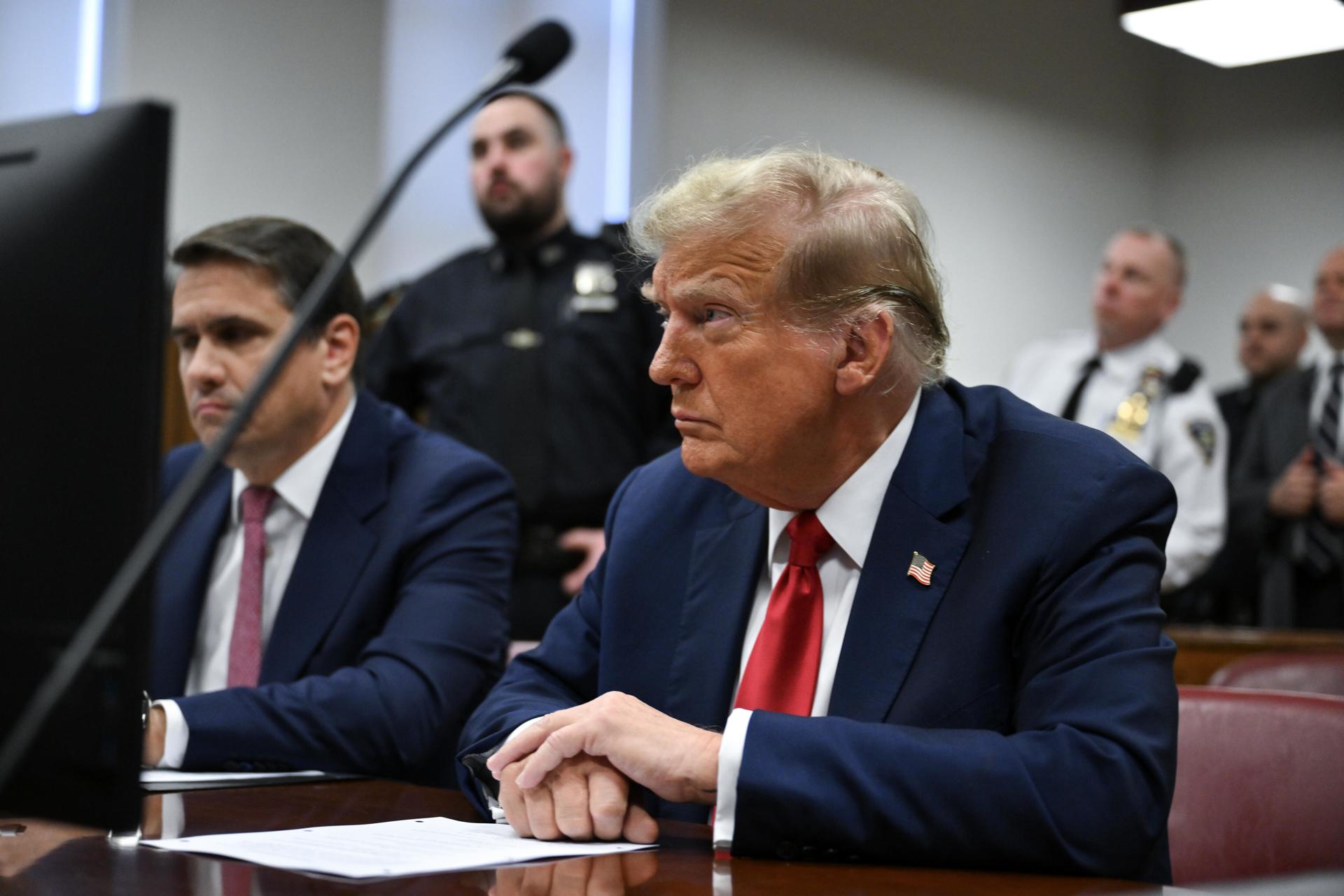Trump's Oil Industry Ties Intensify During Campaign
Investigations arise as Trump garners massive oil industry support during Texas fundraisers, hinting at policy rollbacks in exchange for campaign funds.
Published May 26, 2024 - 00:05am

Image recovered from forbes.com.mx
HOUSTON: In a series of Texas fundraising events, Donald Trump secured tens of millions in support from the oil and gas industry with visions of enhanced infrastructure and deregulated fracking. Trump, embracing a pro-fossil fuel agenda, criticized President Biden's carbon-reducing policies, highlighting how the industry has thrived despite them. Prominent figures like Jeff Hildebrand and Harold Hamm stood behind Trump's promises of pipeline expansion and fracking restoration on federal lands.
Allegations have emerged that in exchange for campaign contributions, Trump offered to dismantle a suite of environmental protections, accelerating the approval of industry licenses and augmenting their fiscal advantages. The assertions prompted US Senate finance and budget committees to initiate an inquiry into what has been deemed 'quid pro quo' propositions. This investigation aligns with a recent request for information by a US House oversight panel regarding the oil industry's potential campaign finance deals with Trump.
Details disclose that Houston's luncheon with oil executives and potential running mate Governor Doug Burgum was followed by a Dallas fundraiser, collectively amassing upwards of $40 million. These investments mark a pivotal shift in Trump's campaign potential, allowing him to surpass Biden in fundraising and significantly contribute to his legal fees. Trump's appeal is bolstered by his vision to harness 'American oil' and reduce dependence on imports, such as Venezuelan crude.
Skeptics, however, observe these actions with concern. Critics argue that Trump's close alliance with the oil industry, coupled with his pledges of tax cuts and deregulation, hint at a policy environment potentially dominated by fossil fuel interests. These concerns are magnified by investigative revelations that oil executives have allegedly been drafting executive orders for a prospective Trump administration, aiming to expand natural gas exports, decrease drilling costs, and enhance offshore oil permits.
Amidst this finance-driven political exchange, the relationship between Trump's campaign and the oil industry has come under serious scrutiny, with congressional Democrats probing into Occidental Petroleum's dealings and other companies following FTC collusion accusations. With the climate crisis intensifying, donations flowing into Trump's campaign from the fossil fuel sector raise crucial questions about sustainable future policies.
The outreach to oil and gas leaders is indicative of Trump's deliberate attempt to consolidate a voter base that favors energy independence and resists the shift towards renewable resources. Trump's rhetoric targets a demographic that views traditional energy production as a cornerstone of the country's economy and international leverage. As the US faces geopolitical instability, with particular concern regarding Eastern European energy dynamics, Trump has tapped into fears of increased gasoline prices and the perceived risks of transitioning to greener energy sources too rapidly.
Experts observing Trump's gatherings noted that energy policy proposals were not the only topics discussed. There was also an emphasis on renegotiating trade deals to favor American petroleum products and strengthening the nation's position in global energy markets. Observations from attendees suggest Trump is appealing to the desire within the industry to see the re-imposition of sanctions on Iranian oil, a factor that could potentially increase global dependency on American energy exports.
While Trump's narrative centers on economic growth and national security, the environmental implications cannot be overlooked. The proposed rollbacks on regulations have environmental advocates deeply aggrieved. They underscore that such moves would not only exacerbate climate change consequences but also endanger public health through increased air and water pollution. This sentiment is echoed in broad public demonstrations and campaigns against Trump's environmental positions, as environmentalist groups mobilize resources to counteract the narrative of fossil fuel indispensability.
Moreover, the legal ramifications are coming to the fore with possible litigation risks. Environmental organizations, citing the "public trust doctrine," suggest that Trump's policies could be challenged in court for failing to protect shared natural resources. Legal trials could potentially thrust Trump's support among oil magnates into the national spotlight, provoking a public discourse on the balance between economic gains and environmental costs.
Trump's leverage over his opposition seems to be growing, with his well-funded campaign apparatus poised to make substantial media buys and grassroots organizational expansions. Beyond the oil and gas industry, his team has been courting wealthy donors across the business spectrum, presenting a platform of deregulation and tax incentives that they find enticing. Yet, this fundraising success brings its own hurdles, as rival political factions and watchdog organizations demand greater transparency and adherence to campaign finance laws.
Political analysts argue that the oil and gas funding could be a double-edged sword for Trump. While it does equip his campaign with robust resources, there remains the risk that such conspicuous alignment might alienate the suburban and younger voters who are increasingly sensitive to climate issues. This demographic shift could be critical in battleground states, where margins of victory are often slim and where environmental concerns have become a rallying cry for more progressive candidates.
In the broader context, the global response to climate change is rapidly evolving, with international agreements and corporate commitments gaining momentum. Trump's stance places him at odds with a growing consensus that aims to reduce carbon emissions and prioritize sustainability. As the world looks towards COP28 and beyond, the United States' position on climate change, dictated by its leadership, will likely continue to be a significant topic of debate both domestically and internationally.
As the 2024 election approaches, the complex intertwining of campaign finance, energy policy, and environmental protection promises to inflame passions on all sides of the political spectrum, setting the stage for a contentious battle over the nation's future direction. Observers suggest that while Trump's current strategy may secure short-term gains, it is the long-term implications of energy policies on the US and global stage that will leave an enduring mark on his legacy and influence America's position in the fight against climate change.







